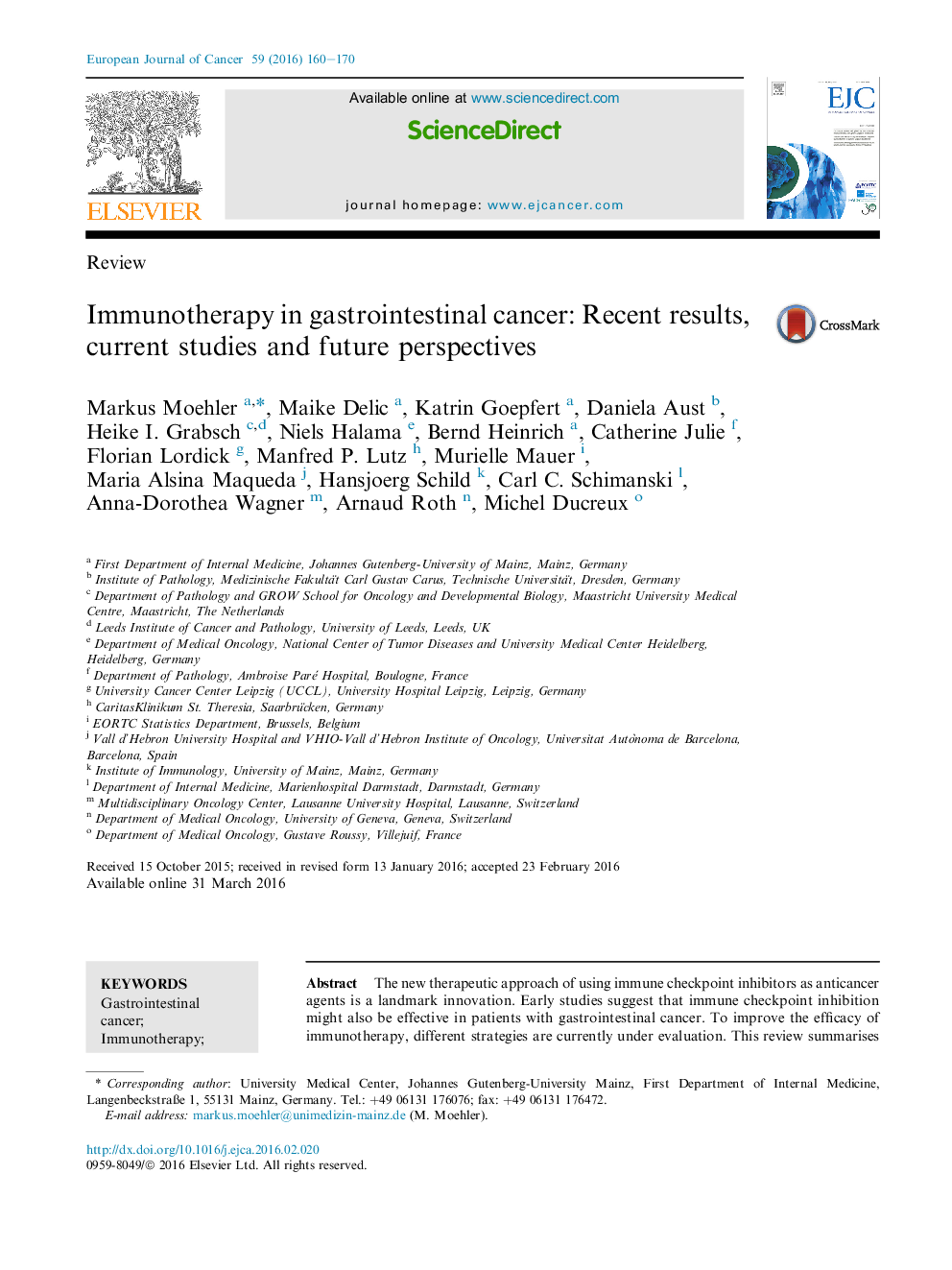| کد مقاله | کد نشریه | سال انتشار | مقاله انگلیسی | نسخه تمام متن |
|---|---|---|---|---|
| 2121491 | 1547077 | 2016 | 11 صفحه PDF | دانلود رایگان |
• Preclinical and early clinical data suggest that immunotherapy is effective in patients with gastrointestinal cancers.
• Knowledge of the relationship between tumour and tumour microenvironment including the immune system is essential.
• Density of T cell infiltrates in colorectal cancer metastases was associated with response to chemotherapy.
• High expression of programmed cell death ligand 1 in gastric cancer was related with poor prognosis.
• To evaluate new immunological approaches with checkpoint inhibitors, prospective trials which include translational research are needed to identify biomarkers and select patients to optimise benefit.
The new therapeutic approach of using immune checkpoint inhibitors as anticancer agents is a landmark innovation. Early studies suggest that immune checkpoint inhibition might also be effective in patients with gastrointestinal cancer. To improve the efficacy of immunotherapy, different strategies are currently under evaluation. This review summarises the discussion during the European Organisation for Research and Treatment of Cancer Gastrointestinal Tract Cancer Translational Research Meeting in Mainz in November 2014 and provides an update on the most recent results of immune therapy in gastrointestinal cancers. Knowledge of potential relationships between tumour cells and their microenvironment including the immune system will be essential in gastrointestinal malignancies. In this context, the density of T cell infiltration within colorectal cancer metastases has been associated with response to chemotherapy, and a high expression of programmed cell death ligand 1 (PD-L1) in advanced gastric cancer has been related with poor prognosis. Effective targets might include neo-antigens encoded from genes carrying tumour-specific somatic mutations. Tailored immunotherapy based on such mutations could enable the effective targeting of an individual patient’s tumour with vaccines produced on demand. Other strategies considering checkpoint inhibitors have shown efficacy by targeting cytotoxic T-lymphocyte-associated protein 4 and PD-1 or PD-L1. DNA mismatch repair-deficient tumours appear to be potentially the best candidates for these therapies. Finally, the combination of oncolytic viruses with immunotherapy might boost antitumour activity as well. Further evaluation of these promising immunological therapeutic approaches will require large prospective clinical studies.
Journal: European Journal of Cancer - Volume 59, May 2016, Pages 160–170
